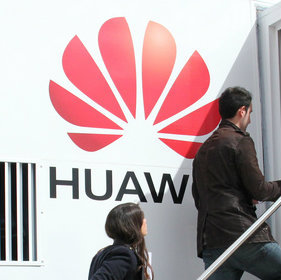
Huawei is working with chip supplier STMicroelectronics to develop silicon for its mobile and automotive products as part of an effort to protect the Chinese company from broader US trade restrictions, according to a new report.Japan's Nikkei reported on the new partnership between Huawei and French-Italian chipmaker STMicroelectronics, citing unnamed sources familiar with the matter. The publication noted the partnership started last year but has not been publicly announced.China's Huawei currently obtains chips from a variety of sources including TSMC, a Taiwanese semiconductor firm. Several of Huawei's 5G chips and server microprocessors rely on TSMC's manufacturing capabilities. But there are growing indications that US officials will move to prevent Huawei from obtaining TSMC's chips.That possibility has raised significant concerns among Huawei's leadership. "China's government will not stand by and watch Huawei get slaughtered on the chopping board," said Eric Xu, one of Huawei's rotating CEOs, when asked about the possibility of Huawei being cut off from TSMC.The new collaboration between Huawei and STMicro would represent an expansion of the companies' longtime supply agreement for sensor chips. According to the Nikkei, Huawei is working with the company on some advanced chips for phones as well as autonomous automobiles, an area in which Huawei is investing.The US hasn't yet made any official moves to prevent Huawei from doing business with TSMC, but that certainly appears to be on the table amid the wider trade war between the US and China. How COVID-19 and a possible global economic recession might impact that situation remains unclear.— Mike Dano, Editorial Director, 5G & Mobile Strategies, Light Reading | @mikeddano
Read more about:
AsiaAbout the Author(s)
You May Also Like




_International_Software_Products.jpeg?width=300&auto=webp&quality=80&disable=upscale)







